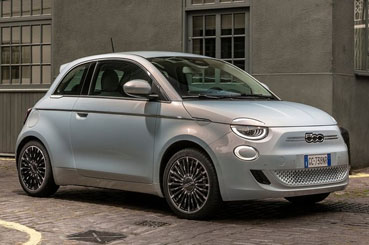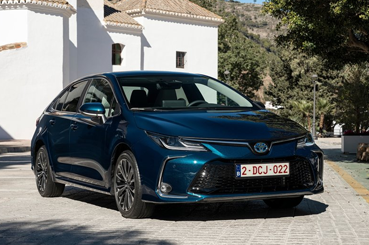Have you been looking into buying a car on finance but not sure what the best option is? Well luckily, we’ve made that easy for you by comparing the most popular options of car financing: Personal Contract Purchase (PCP) or a Bank Loan.
Personal Contract Purchase (PCP) Finance:
One of the most popular options for car financing is Personal Contract Purchase Finance (PCP) through a car dealership. This is a car rental agreement through a dealer where you only pay the value of depreciation over the agreed term. A PCP may seem difficult at first, but it is only comprised of three main payments with a few T&Cs:
- A deposit
- Monthly payments
- Balloon Payment
PCP Deposit – How Does it Work?
Paying a deposit is simple. Car dealers will typically ask for a minimum of 10% of the value of the car, which starts you off towards the monthly payments. However, if you have the ability to put down a higher initial deposit, you can lower the cost of each monthly payment.
Making monthly payments is the only way of keeping the vehicle throughout the duration of your agreed contract. This payment will always be discussed when deciding the right contract – and is valued against several factors, such as the value of the car, the amount of deposit, the agreed mileage and contract length.
What can be confusing is the balloon payment. Often known as a Guaranteed Minimum Future Value (GMFV), this is your OPTIONAL final expense to the finance issuer if you decide to keep the car once your agreement has come to an end that will cover the cost for the rest of the car.
Finally, when you reach the end of your contract the car dealership will invite you back to discuss your next steps.
These can be:
- Paying the balloon payment to own the car outright.
- Give the car back and start a new PCP agreement with a different car.
- Hand it back and walk away.
This makes choices very flexible in terms of your next steps to either upgrading to a new car or adopting the current one permanently.

What are PCP Advantages and Disadvantages?
Pros:
- Option to get a new car at the end of the agreement.
- Low monthly payments.
- No chance of losing personal assets.
Cons:
- Charged if the mileage exceeds the monthly quota.
- This is a rental – never fully own the vehicle, unless the balloon payment is made.
- Damage fees.
Remember, a PCP is a rental agreement between you and the car financer, much like renting a house, so you do not fully own the car until you put down a balloon payment.
Bank Loan:
Another popular option for people is a bank loan. With a bank loan, there is the ability to loan the full value of the car from the lender, so you can completely own that vehicle. There are no rentals, no limitations on mileage, and no ties to the car dealership you’ve made that purchase from as you are a cash buyer.
Currently, there are two options for a loan.
- The first option is a secured bank loan, in which the bank will ask you to secure that loan against an asset as a guarantee to pay the set payments each month. The typical asset against a loan is a house, but a BIG factor to consider here is if payments aren’t made on time – your house can become repossessed. Not ideal if you can’t assure the payments will be made.
- The second option for a bank loan is an unsecured loan. None of your assets will be asked to go against this loan, but more times than enough a guarantor will need to be provided as a liability if you cannot make the monthly payment. This essentially means they will have to make the payment for you.
The most appealing part of a bank loan is the fact you would own the whole car. It is yours – it doesn’t need to go back to the dealership in a few years – you can do as you please with it.

Bank Loan Advantages and Disadvantages:
Pros:
- Car is yours to do what you please with.
- Flexible options in the long run.
- Do not need a deposit.
Cons:
- If a secured bank loan is chosen, payments need to be made on time or risk losing an asset.
- A longer length loan agreement can make interest higher, essentially paying more than the car’s actual valuation.
- Dependent on personal credit rating.
Which Car Finance Type is Right for Me?

After looking at both a PCP and a Bank Loan, it’s time to really consider which would suit you for getting your next car. Both options are great ways to affordably manage the costs of a car, especially if it’s a dream car of yours.
The first way to look at these car finance options is whether you want the car indefinitely, or if you like the idea of changing it every few years.
Car Ownership
If your first thoughts are ‘I want the car for a long time – to do as I please – no fixed mileage to think about’, then a bank loan might be the best choice so you can own the car outright with your own rules.
Also if your credit score is good, the bank may offer a good deal on their interest rates so monthly payments may not be too much.
Contract Flexibility
Alternatively, with a PCP – the exciting fact is that when your contract is up, you don’t need to be tied down to the car and you can hand it back either and walk away, or better yet get an upgrade!
As well, car dealerships tend to give great discounts or good deals for your monthly costs, which is a great incentive to check out their offers in the branch.
With a lot to consider, the main takeaway points from choosing between PCP or a bank loan would be: do you want to ‘rent a car’ that could be traded in for a brand new one at the end of your contract, or would you want to own the car with no restrictions such as damage fees and mileage excess?
Want to find out more about car finance? Head over to our car finance page to explore your financing options.
Representative example: £19,121.93 repayable over 48 months. 48 monthly payments of £323.72. Deposit of £1,266.23. Amount of credit £17,855.70. Representative 11.36% APR. Fixed rate per annum 6.46%. Final Payment £8,511.57. Option to purchase fee £399.00. Cost of Credit £6,194.43. Total amount payable (Incl. Deposit, charge for credit, final payment & purchase fee) is £25,715.36.





